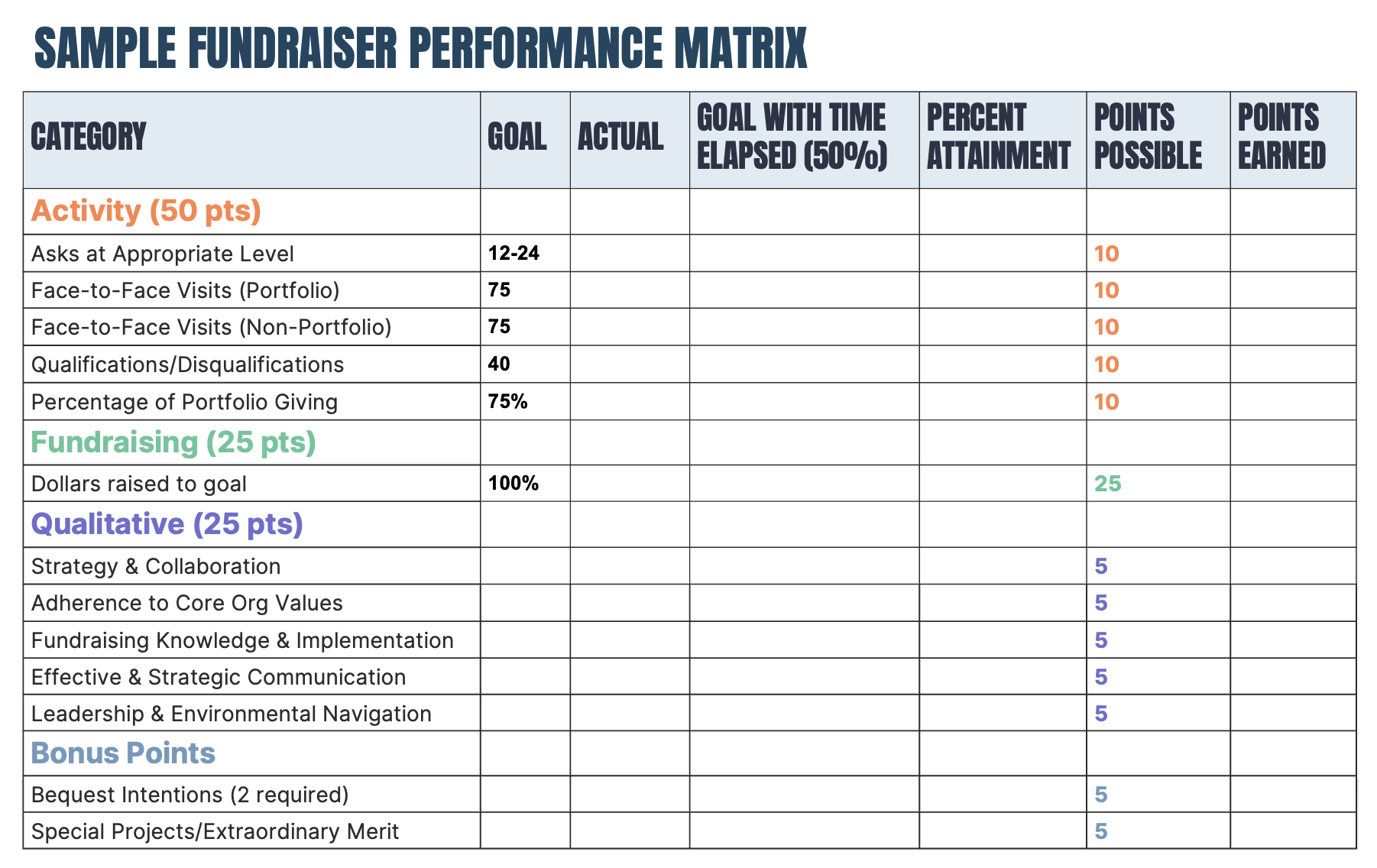How Metrics Can Help Fundraising Professionals Reach Their Goals

The start of a new year is an optimal time for fundraising professionals to evaluate progress and make adjustments to reach their goals in the coming year. If you are ready to refresh your fundraising strategy, fundraising metrics can play a transformative role in assessing progress toward individual, departmental, and organizational fundraising goals.
Importance of Fundraising Metrics
While fundraising may be an art, it is improved by the science of data. By using data to define success, fundraisers can create accountability-driven plans that lead to increased philanthropy.
CFA Principal-West Coast Kristin Love has more than 20 years of experience of applying fundraising metrics in higher education, program development, and nonprofit advancement. According to Kristin, “The right combination of quantitative and qualitative data brings focus, promotes accountability, and ultimately helps drive a culture of philanthropy.”
Data can encourage productivity for a fundraising team. “What gets measured, gets done,” says Kristin, adding, “Regular analysis of key metrics can impart value and enable progress toward an organization’s top priorities.”
Identifying Effective Fundraising Metrics
Traditionally, organizations have relied on lagging indicators, such as dollars raised, to evaluate the performance of fundraising staff. These indicators are reflective of past—not current—activities, which means they are not the most accurate points to assess current fundraising behaviors.
For a more accurate depiction of current fundraising progress, Kristin recommends instead relying on activity- and outcome-based leading indicators that measure moves management in real time, such as:
- Modes and rates of donor engagement
- New donor qualifications
- Solicitations at appropriate giving levels
- Percentage of overall portfolio giving
These leading metrics can inform time management, improve accountability, and increase giving and donor retention. By coupling quantitative indicators with qualitative measures of organizational values and team culture, an organization can build comprehensive and predictive measurement systems to drive future fundraising success.


Implementing a Fundraising Measurement Plan
If you are ready to implement metrics into your fundraising plan, Kristin recommends identifying a clear starting point for introducing them into a team’s workflow, emphasizing that, “It is incumbent upon leaders to establish a new beginning for integrating fundraising metrics as part of a broadscale reset.”
A testing period can validate data with input from team members while also establishing new cultural norms and baselines for new metrics. Kristin suggests starting with data that is readily available and consistently tracked. A full integration of fundraising metrics requires buy-in at all organizational levels, clear and consistent methods for reviewing and applying data insights, and a commitment to continuous improvement and accountability.
Consistent use of key fundraising metrics has distinct benefits at all levels of an organization:
- For frontline fundraisers, a data-driven approach enables purposeful, strategic check-ins with managers and endorses productive fundraising behaviors. The consistent use of leading indicators also contributes to more consistent moves management and donor engagement across an organization.
- For fundraising leaders, the combination of leading indicators supplemented by qualitative, organizational metrics provides a strong foundation for hiring, decision-making, training, and portfolio optimization. For example, analyzing fundraising data between team members enables leaders to pinpoint activities that lead to success. Leveraging these insights enables leaders to intentionally celebrate and encourage effective fundraising behaviors while identifying training opportunities and scaling effective strategies through cross-collaboration.
Integrating key fundraising metrics into regular practice requires a commitment to continuous improvement and tracking of the metrics themselves, as well as data-informed fundraising strategies. As fundraising momentum builds, Kristin encourages fundraising leaders to continue refining and evolving their data to ensure ongoing relevance, provide sustained accountability, and identify new insights that will continue to drive fundraising results.
CONTACT US
CFA offers a customized, capacity-building approach to help organizations elevate their fundraising strategy through increased data integrity, sustainable reporting systems, and data insights. If your organization is interested in integrating fundraising metrics to drive philanthropic results, contact CFA today to explore how we can help.
Kristin Love, Principal, West Coast
Kristin Love comes to CFA as a proven capacity-builder, collaborator, and change-maker in the philanthropic space, with over 20 years of experience in higher education, program development, and nonprofit advancement. Prior to joining CFA, Kristin served as Vice President for Development at Loyola Marymount University in Los Angeles, California. At LMU, she oversaw efforts to evolve development structures and processes to motivate an accountability-driven environment, partnering with academic and administrative leadership to align goals and priorities in pursuit of increased philanthropy.
Before LMU, Kristin held leadership roles in the advancement offices at Colorado College and University of Denver, championing creation of new initiatives at both institutions that integrated engagement and philanthropy. Her career experience includes development roles at large national and small local nonprofits, as well as global organizations such as JDRF International. Her passion for mission-centric fundraising work and the positive impact it can have on institutions and organizations began as a work-study student in the grants office at her alma mater, Baylor University, where she earned a BBA in public administration and Spanish.
A native of Dallas, Texas, Kristin spent over two decades in Colorado before relocating with her family to the Los Angeles area in 2020. The mother of 15-year-old twins, Kristin enjoys watching her daughter’s athletic pursuits, and son’s music and acting endeavors. In her free time, she can be found traveling or at a potter’s wheel.
Kendall Carlson, Content Writer
A frequent contributor to CFA’s digital content, Kendall Carlson has spent her career advancing nonprofit organizations across the Twin Cities. With 16 years of experience, Kendall brings a balance of strategic and operational leadership spanning fundraising, program development, evaluation, and strategic planning.
Most recently, Kendall served as Development and Communications Director at Hired, where she diversified revenue for the organization’s $11M budget and increased individual giving by 60%, led a rebrand, and launched an organization-wide data for impact initiative. Prior to Hired, Kendall served at Greater Twin Cities United Way, where she led an advancement strategy team to increase investment and engagement from the organization’s top corporate and major donors. Kendall is known as a strategic, solution-oriented leader with a high capacity for detail and commitment to quality. She launched her consulting practice, Luminate Consulting, in 2022 to bring her skills in fundraising and program strategy to nonprofits seeking sustainable growth.


